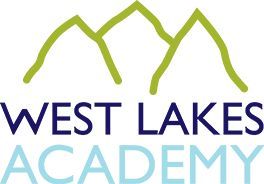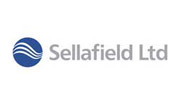Maths
Overview
Mathematics is a core curriculum subject as specified by the government and is mandatory for secondary age students in Key Stage 3 (years 7-9) and Key Stage 4 (years 10-11). West Lakes Academy is committed to the progression of each and every one of our students, offering them multiple pathways to mastery of the subject by allowing them to experience, describe, discuss, investigate, and manipulate both the virtual and the real world using the language of mathematics.
Mathematics is taught in schools as much for its mode of thinking as for its set of skills and powerful knowledge. Whilst many posit the question “When will I use this in my life?”, research has demonstrated that children who study and practise mathematics accelerate the physical development of perceptive and cognitive structures in their brains. These changes give them access to sophisticated descriptive, modelling, and problem solving abilities which are vitally important in our increasingly complex society and fiercely competitive workplace.
Mathematics has been identified by successive governments as being fundamental to national prosperity in providing tools for mastering engineering, technology and economics, and underpinning many other professions such as medicine, architecture, planning, media, finance, and the law. It is essential in public decision making and for participation in the future knowledge and AI economies. Mathematics is recognised as providing students with uniquely powerful ways to describe, analyse, problem solve, and succeed in the world.
Teaching is conducted through a mix of activities: teacher-led introduction and exploration of new skills, peer group investigations, independent research and practice, and home learning activities.
Key to optimum outcomes is the development of successful behaviour for learning strategies in your child that grow an independent work ethic and growth mindset. Whilst teachers offer introduction, exploration, and application to the topics, true mastery, as with anything, requires both curiosity and practice; students are expected to make use of the many web based resources, including knowledge organisers, video lessons, self-marking question banks, extension articles, and examination practice whilst at home. We ask that parents support us in this process and staff are always available to offer advice and support.
Key Stage 3
Mathematics is a compulsory subject at key stage 3 (Y7-9) taught over four lessons a week. It is prescribed by the national curriculum, which can be viewed by clicking here. The purpose of key stage 3 is to provide a transition from the number-rich world of key stage 2 to the wider mathematical universe of number, shape, and algebra that lies at the heart of key stage 4.
Our key stage 3 scheme of work places problem solving at its heart in order to develop mastery within our students and prepare them for optimum outcomes. The objective is to develop a deep and powerful grasp of mathematics; not just a rote learning of method and its pattern application but a rich and deep appreciation of the concepts: the nature of number; numerical operation; maths as a language for describing and manipulating quantity, geometry, and data in the real world.
Students are given summative examinations called Trinaries three times a year, supported by frequent and finely grained individual topic assessments. The former provide us with a deeper measure of understanding and application over longer time periods whilst the latter are used to inform immediate planning via feedback, intervention, consolidation, and extension.
Key Stage 4
Mathematics is a compulsory subject at key stage 4 (Y10-11) taught over five lessons a week and assessed via a GCSE matriculation at the end of Y11. It is prescribed by the national curriculum, which can be viewed by clicking here. The purpose of key stage 4 is to develop a rich and deep mastery of knowledge, skill and application of mathematics via numeric and generalised process. Due to the nature of the curriculum, two pathways are provided, foundation tier and higher tier, which are examined via three papers (one non-calculator, and two requiring a calculator). Foundation tier awards range from U to 5 and Higher tier awards from U then 3 to 9. Grade 4 is a pass; grade 5 is a strong pass. Exams are sat in May and June of Y11, with results being announced in August.
We subscribe to the Edexcel examination board and its specification can be found here. Our scheme of work breaks this specification down into several interdependent strands: number and algebra; geometry; statistics; mathematical processes and applications. The last strand is embedded in work throughout the other three as it deals with mathematical thinking and the ability to solve problems. We focus on teaching for understanding which means that we develop the underlying concepts rather than promoting a style which relies on ‘recipes’ for completing each type of problem.
Material is presented in a set of topics that link concepts, skills, practice, and application, building on a developing and widening knowledge base. They last between two and three weeks in general and are assessed after a period of maturation, feeding the vital mastery feedback loop between student and teacher. Trinary assessments occur three times a year, merging with GCSE mock examinations from the Spring of Year 11.
Post 16 (KS5)
Those who chose to continue maths into Sixth Form are joining a passionate, influential, and successful group of human beings: Alan Turing (Pioneer of the computer age), Tim Berners-Lee (Inventor of the Web), Carol Vorderman (Celebrity, Educationalist, & Activist), & Hannah Fry (Mathematician & Educationalist) to name but four.
Mathematics is the language of the universe, underpinning the obvious subjects of science, technology and engineering but also any numerate subject, such as economics, business, planning, media, and architecture. More surprisingly, it is also highly valued in law and the civil service, for its intellectual rigour, modelling, and problem-solving skill set. A mathematical mind is invaluable to any degree or career and the subject is an excellent core or value-add choice for all Sixth Form adventures.
Sixth Form study is very different from that experienced in lower school. Students chose to study their sixth form subjects and in doing so take on the responsibility for their learning. Teachers act as guides and mentors but students will spend much of their independent study and home time working together and on their own to practise and master their subjects. This change in behaviour for learning and study culture is vital for success and needs to be embraced immediately on entry into sixth form.
The maths department offers a variety of Post 16 pathways.
A Level maths
Students study pure mathematics, mechanics, and statistics, advancing into calculus, one of the most powerful mathematical tools: the subject is taught over five periods a week with three exams at the end of Y13. A minimum of a grade 7 in maths at GCSE is required.
Further maths
Students study additional pure mathematics and mechanics, and are introduced to the topic of decision, which underpins topology, networks, project management, and the growing world of Artificial Intelligence: the subject is taught over three periods a week with four exams at the end of Y13. A level maths must be taken and a grade 8 or 9 in maths at GCSE is required.
AS Level maths (maths for science)
An excellent small step beyond GCSE for those who want to support their other A levels or just enjoy the fun and challenge of mathematics: the subject is taught over three periods a week with two exams at the end of Y13. A minimum of a grade 6 in maths at GCSE is required.
L3 Core maths (maths for business)
An exciting course beloved of business and apprenticeships. The course provides an introduction into financial mathematics, project planning, estimation, and risk assessment: the subject is taught over three periods a week with two exams at the end of Y13. A minimum of a grade 5 in maths at GCSE is required.
For the purpose of university entrance points, AS Level and L3 Core qualifications count as half an A Level equivalent.
If you have any other questions, please do not hesitate to contact the department via email.





